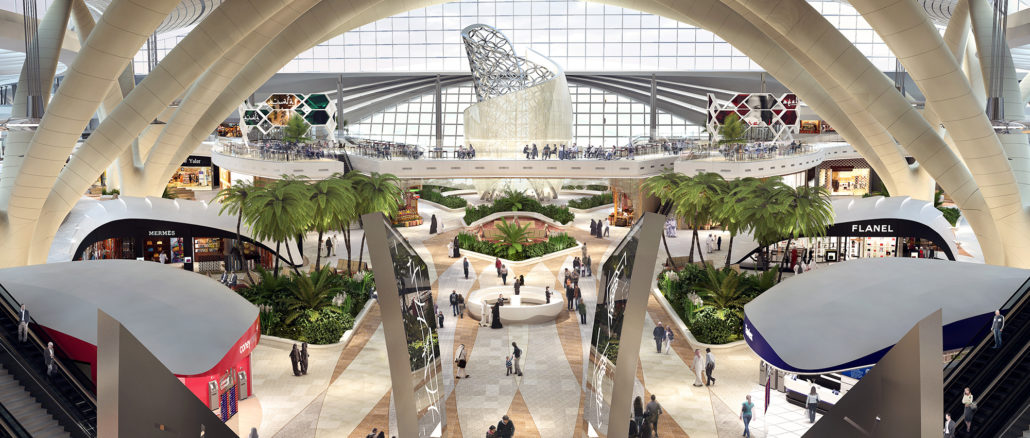
The traditional shopping mall and retail have been faced with new trends and demands that millennials have brought into the forefront. The age of technology and millennials’ unique lifestyle have truly reimagined the retail industry that now has to embrace innovation and change. As the generation with the greatest consumer power at the moment, millennials are the ones who set the new rules that shopping malls need to follow.
In-mall entertainment
Entertainment has become an essential aspect of malls since millennials now seek immersive, multisensory experiences. They place great value on entertaining activities that they can share with their friends and family. In order to provide successful entertainment, malls will have to embrace technological advancements and incorporate virtual reality and participative experiences. Malls will also have to reimagine their designs and make room for public events and spectacles that will entertain the millennial generation. Gaming parlours, movie theatres and theme parks will also be reinvented in a way that will accentuate interactive experiences and virtual reality.
Restaurants within retail areas
Millennials have adopted a trend toward healthy eating, which greatly affects their everyday lifestyle. This trend will bring about certain changes in traditional malls, as well. Namely, restaurants have become an integral part of retail areas, providing millennials with both casual and fine dining experiences. Once again, technology will soon become deeply rooted in restaurant designs. Self-ordering, healthier eating options, “cook your own food” facilities are just some of the characteristic of retail restaurants designed to meet millennials’ needs and preferences. Of course, entertainment is also important in these restaurants because the millennial generation is seeking experiential dining. Thus, guests will have opportunities to meet celebrity chefs or visit gourmet food halls, for instance.
Authentic retail stores

When it comes to retail stores, they will have to establish their own identities and brands because millennials have a tendency to express “identity loyalty”. A business with a strong brand identity and authentic design that reflects that identity provides millennials with a deeper connection and more enriching shopping experience. Store owners need to go with authentic and brand-inspired retail space architecture that will provide customers with a meaningful experience. Both architecture and interior design should strongly reflect a brand through every single detail. Of course, each retail store should have its own brand that will be deeply rooted in every aspect of its business operations, from design to digital presence. Millennials are loyal to brands that strongly portray their values, personality and style because they embrace such brands as a part of themselves.
Transportation amenities
Millennials have a hectic lifestyle, which is why they’re always seeking amenities that will make their everyday lives easier. For instance, getting into and out of a mall is an essential aspect of their shopping experience. They want stress-free experiences, which is why traditional malls will have to reinvent their parking spaces and provide millennials with different amenities that will facilitate mall parking. Once again, technology will play a crucial role in achieving this, bringing robot parking valets, integrated parking apps and sensors, fast-charging stations for electric cars, etc.
Sustainability all around

As an eco-conscious generation, millennials greatly value sustainable and green design. Traditional malls and retail stores will have to embrace eco-friendly designs and green initiative, and incorporate sustainability into their business operations. An increasing number of malls are implementing outdoor areas into their designs, creating green roofs, embellishing their interiors with greenery and choosing sustainable materials. Malls will also contribute to raising eco-consciousness in their visitors by accentuating the importance of sustainability. Furthermore, you can expect to see an increase in the number of open-air shopping centres that will embrace nature as the very core of the shopping experience.
Sense of place
As already mentioned, the millennial generation is looking for immersive, multisensory and interesting experiences. They don’t just want to go shopping, but rather visit an authentic retail centre that will make them feel special. They want malls that will also provide them with an insight into the unique character of a particular city. Designers will implement numerous solutions that will help them portray the spirit of their cities or towns while malls will also organise destination-inspired entertainment and activities.
Emotive design
Since millennials connect with their favourite brands on a more personal level, retails stores should focus on emotive designs that will evoke an emotional response in their customers. This can be achieved through the implementation of the right design elements. Innovative lighting, carefully picked colour palettes, natural areas and brand-inspired decorative details are just some of the elements of an emotive design. Furthermore, malls will also provide their customers with multisensory experiences by appealing to sight, sound and smell. Such a design will truly provide a more personalised, human experience that will leave customers with long-lasting memories.
Millennials have certainly brought about numerous changes that now dictate the future of numerous businesses. When it comes to traditional malls, it’s essential that they embrace innovation and provide their customers with a truly enriching and immersive shopping experience.
Chloe is a graduated journalist from Adelaide and a regular contributor to Smooth Decorator. She loves everything related to decor, aesthetic and lifestyle topics. She is also passionate about photography. Her biggest dream is to travel the whole world and take some stunning photographs of beautiful places. Beside all this, she enjoys drinking coffee and reading a beautiful book from time to time.

Leave a Reply